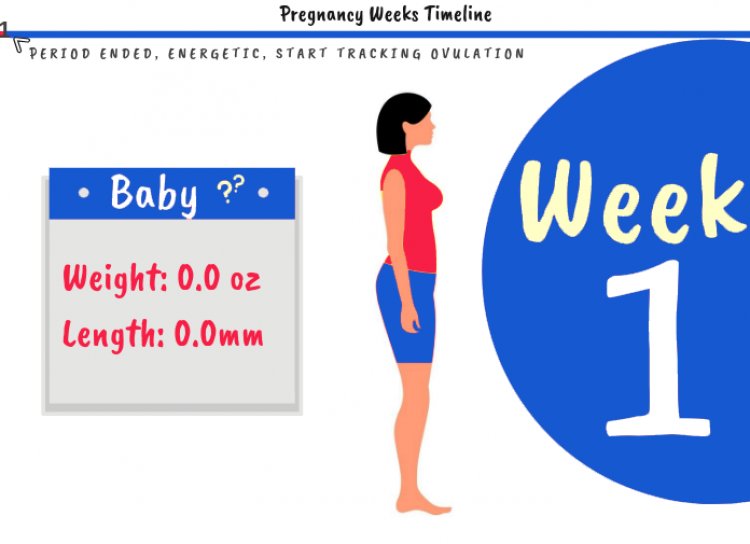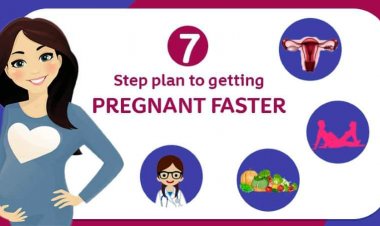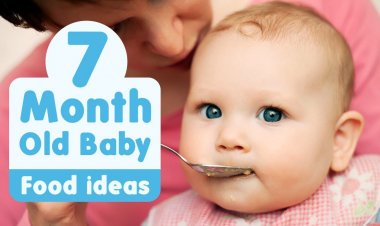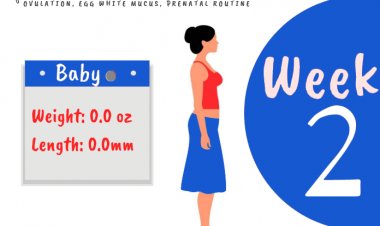1 week pregnant - what to expect?
As soon as you know that you are pregnant, forget everything you have heard about it. Movies tell us that you will start feeling nauseous in the morning and crave different foods only after you test positive for pregnancy. This is not entirely true! This is when your period is about to come and in this case, the baby is not even present. This happens because there is still a delay of several weeks in conception. This does not mean that you should ignore this first week. You still have to make some initial plans and keep track of the days.

Every time you get your period, your body prepares itself for a possible pregnancy. If conception happens within a fortnight, there are a lot of complex hormonal changes going on in your body to help this happen. So we count the first day of a woman's period as the first day of time starting till the expected date of birth of the baby. Although it may seem meaningless, it is standard practice to include the first 2 weeks.
Mark on the calendar the day and date of the start of the period and the number of days the period lasts. And yes, it might sound like a boring task but if you can do it, record it for a few months so that you know the duration of your cycles. In most women, it is 28 days, although some days more or less than this are considered normal periods. Getting familiar with your own body's changes and cycles will help you conceive and plan for the most likely time you'll get pregnant.
When will you ovulate?
In most women, ovulation occurs around 12-14 days from the first day of the period. If you want to get pregnant, try to have sex on the same day, or just before you ovulate.
Conception: how and when does it happen?
We may never know for sure the exact time to conceive. Usually, conception happens without any fanfare or any external sign and you don't know. No one suddenly says 'it happened' to tell you that you are pregnant. This is a slow process and it may take several weeks for some women to realize it.
The egg (ova) survives only for a short period after it is released from the ovary. It takes 12-24 hours for an egg to travel from the ovary to the fallopian tube. This is where fertilization of the egg with the sperm takes place. Sperm usually live longer than the egg, but only the most capable and motile sperm can reach the fallopian tubes through the cervix and uterus.
Many books and websites refer to the Last Normal Menstrual Cycle or LNMP. This is because some women have light bleeding when a fertilized egg penetrates the wall of their uterus. It is important that this type of bleeding should not be confused with a period, which is why the term "normal" or normal is used to clarify it.

What can you do when you are one week pregnant?
- Record when your period starts and how long you bleed. This will help you keep track of the duration of your cycle and know when you are likely to get pregnant.
- If you want to be sure about your chances of getting pregnant, stop using contraception. If you were using hormone-based contraception such as birth control pills, remember that it will take some time for your body to return to its normal cycles.
- Start taking prenatal vitamins that include a folic acid supplement. The recommended dosage for early pregnancy is 500 mcg daily and if possible start taking it a few months before the planned time to conceive. Consult your doctor before starting any course of vitamins.
- Try to stay healthy and agile. Get some exercise every day and eat right. Eating a lot of junk food may sound right now but trust us, it is not.
- Get a medical checkup to make sure your body is in good health to conceive. Being overweight, smoking, taking drugs, or having an unhealthy lifestyle can hinder or delay pregnancy.
- Make sure your immunizations are up to date. Talk to your doctor about what you should do to keep you and your baby safe.
- Do not take any medicine unless it has been prescribed for you. Some medicines can be harmful to the baby, especially in the early weeks of their development.
This week's advice
Make a healthy life goal. Focus on what is good for you and what is good for you to keep your body strong and healthy. If you have made a well-thought-out decision to get pregnant, respect your decision. Do things that are beneficial to your mental and physical health. Your baby will grow well with this!

 mybabycare
mybabycare 















